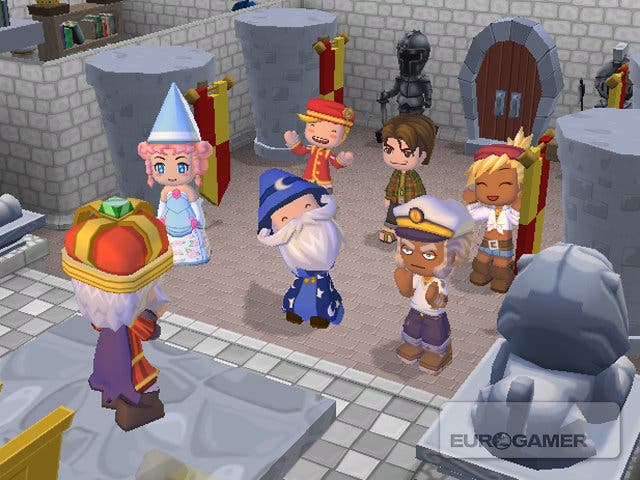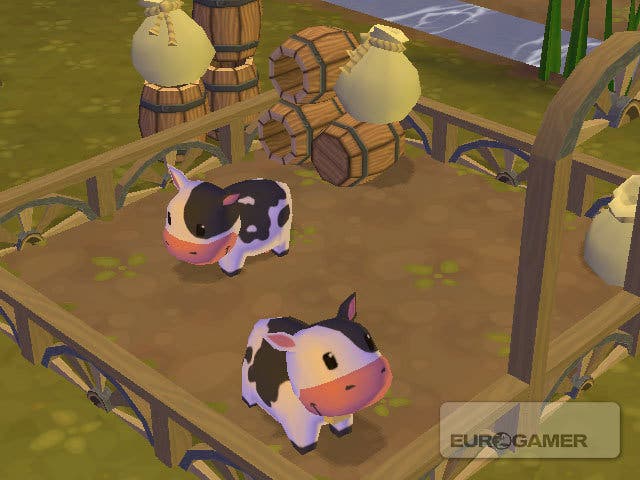MySims Kingdom
An audience with the rulers.
It's one of the most successful videogames in history - so successful, in fact, that publisher Electronic Arts has an entire business unit devoted to it. It propelled creator Will Wright from geek hero to media darling, and earned him a reputation as the medium's Spielberg. Yet for Tim LeTourneau, The Sims has one glaring problem.
"The Sims is a phenomenal game - I spent a lot of my career working on The Sims - but it's limited in one specific place," he muses. "The Sims are only Sims within their world. Taken and isolated by themselves, they're just generic videogame characters."
In simple terms, then, "They're not iconic. I mean, name your favourite Sim? That's the easiest thing to ask, and people are obviously hard-pressed to do that. It's a game where you're creating most of the Sims, you're the storyteller... It's just not easy to take them out of that environment."
These days, LeTourneau is executive producer on the MySims franchise - a spin-off of The Sims which was designed to fill that gap. The idea was appeal to a whole new audience as well as provide something new for dedicated Sims fans to try.

We're chatting to him in a posh hotel suite just moments away from Buckingham Palace, so it's perhaps appropriate that the game playing in the background is MySims Kingdom. The second outing for MySims is a whole new experience, an entirely different type of game built around the same cast of characters as the first title. It sees you embarking on an adventure around an island kingdom, fulfilling quests for a somewhat bonkers king with your magical powers of construction.
The very phrase "cast of characters" is an apt illustration of how far the MySims apple has fallen from the tree. Filled with a cast of charming, unusual characters, MySims has achieved something which no EA-developed game has ever managed before - it's a true character franchise, with easily a dozen instantly recognisable and entertaining characters who liven up the game.
"One of the things we wanted to do with MySims was to create characters that people could engage with, and really get to know," LeTourneau explains. "We wanted a cast of characters, so you could ask people who their favourite MySims character was - and they might say, 'Oh, I love Chef Gino!', or 'I like Vincent Skullfinder,' or 'Violet is my favourite!'
"They can point to a particular character. They know their personality, they know what they're about, they know what they look like visually. They can really make that connection."

(For what it's worth, our personal favourite MySim is Vic Vector, who runs an arcade and spends the first MySims game demanding that you build him an assortment of awesome furniture and classic arcade cabinets. He's our kind of guy.)
With its cute characters and simplified controls, MySims does risk being dismissed as "The Sims but for kids" - an entirely unfair characterisation, not least since the game actually offers a profoundly different experience to The Sims. In fact, for gamers, MySims is arguably pretty appealing - unlike the open-ended, somewhat directionless play of The Sims, MySims continually keeps you challenged with new things to do and new areas to explore.
"MySims was never intended to be Sims Junior," confirms LeTourneau. "It was a case of, hey, what if we made a game that was specifically targeted at Nintendo platforms? What would that game be? We could have very easily just made a Sims game on those platforms - we have a console version of The Sims. This was really an opportunity to step back and say, what would that game be? How do you make a game that feels like it's at home on Nintendo platforms, that it lives there? People need to see it and think, that looks like a Nintendo-type game."


